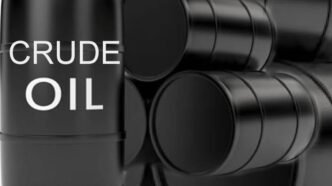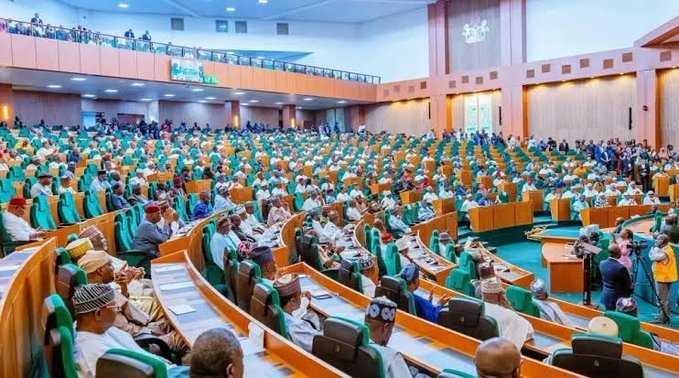The Federal Government of Nigeria has announced that a total of 67,657,559 barrels of crude oil were supplied to local refineries for processing in the first eight months of 2025. The disclosure, made through the Nigerian Upstream Petroleum Regulatory Commission (NUPRC), sheds light on the scale of crude allocations to domestic processors, even as concerns linger over the persistent gap between supply and the refining capacity of indigenous facilities.
While the figure underscores progress in meeting domestic energy needs, it also exposes Nigeria’s continued struggle to balance rising oil production with the demands of local refineries. The development has reignited debates about self-sufficiency in refined petroleum products, the viability of indigenous refineries, and the broader trajectory of Nigeria’s downstream petroleum sector.
Crude Allocation in Context
Nigeria, Africa’s largest crude oil producer, has long grappled with the paradox of exporting vast quantities of crude while importing refined products at great cost. Successive administrations have promised to reverse this dependence by ensuring consistent crude supply to local refineries, thereby promoting energy security and reducing foreign exchange pressure.
According to NUPRC’s latest report, between January and August 2025, the government approved the allocation of 67.6 million barrels of crude oil to refiners. This allocation covered major indigenous refining companies, modular refineries, and the much-publicized Dangote Refinery, which has been described as a game-changer for Nigeria’s downstream sector.
Officials at the Commission noted that the allocations were made in line with the Domestic Crude Supply Obligation (DCSO), a policy framework introduced under the Petroleum Industry Act (PIA) to prioritize domestic supply before exports.
Refiners Still Struggling With Adequacy
Despite the allocations, several refiners have expressed concerns over what they describe as insufficient and irregular supply of crude oil. Industry operators argue that while the government has committed to local supply, the volume made available often falls short of their installed capacity, forcing them to operate below optimal levels.
An operator of a modular refinery in the Niger Delta explained: “What we need is steady, predictable supply. You cannot plan production or guarantee product delivery to the market if your crude allocation is erratic. The government figure sounds impressive, but when distributed among the various refineries, it is still not enough.”
The challenge is further compounded by competition from international buyers. Export markets often offer more attractive terms, making it tempting for producers to prioritize exports over domestic supply. This dynamic has created friction between upstream producers, regulators, and downstream refiners.
The Dangote Refinery Factor
One of the most significant developments shaping Nigeria’s refining landscape in 2025 is the Dangote Refinery, a 650,000 barrels-per-day facility touted as the largest single-train refinery in the world. Since its commissioning, the refinery has been receiving a share of domestic crude allocations.
Industry watchers say that a substantial portion of the 67.6 million barrels supplied between January and August went to the Dangote facility, which requires massive volumes to operate at scale. While this has boosted confidence in Nigeria’s refining self-sufficiency drive, smaller refiners argue that they are being sidelined.
“The arrival of the Dangote Refinery is both a blessing and a challenge,” said energy analyst Bola Akinyemi. “On one hand, it increases the refining capacity available locally. On the other hand, it risks crowding out smaller players who also need crude to survive. The government has to strike a delicate balance.”
Nigeria’s Rising Oil Production
The crude allocation to local refiners comes at a time when Nigeria’s oil production is on an upward trajectory. Official figures indicate that production has averaged above 1.7 million barrels per day in 2025, a significant recovery from previous years marred by theft, vandalism, and underinvestment.
The Federal Government has attributed the rebound to improved security in the Niger Delta, the deployment of advanced surveillance technology, and better collaboration with host communities. With production levels rising, the government argues that there is now more room to satisfy both export markets and local refiners.
Still, challenges remain. Oil theft and pipeline sabotage continue to erode volumes, while global market fluctuations put pressure on Nigeria to maximize export earnings. The balancing act between generating foreign exchange and ensuring local supply remains a major policy dilemma.
Economic Implications
The supply of nearly 68 million barrels of crude to local refineries in eight months carries significant economic implications. By boosting domestic refining, Nigeria reduces its reliance on imported petrol, diesel, aviation fuel, and other products—an outcome that could save billions in foreign exchange annually.
For consumers, increased local refining should, in theory, translate to more stable fuel availability and potentially lower prices. However, this outcome has not yet materialized in full. Rising operational costs, exchange rate fluctuations, and inflation continue to push up pump prices, dampening the immediate impact of improved crude supply.
Economist Dr. Hadiza Sule noted: “The figures from NUPRC are encouraging, but Nigerians are still waiting to feel the impact at filling stations. Until refined product prices stabilize, the ordinary citizen will struggle to appreciate the scale of crude supply.”
Policy Framework: The Petroleum Industry Act
The Petroleum Industry Act (PIA), signed into law in 2021, established the legal framework for Nigeria’s oil and gas industry. Among its many provisions, it introduced the Domestic Crude Supply Obligation, compelling producers to prioritize supply to local refiners before considering export.
The NUPRC is tasked with enforcing this provision, ensuring that crude allocations meet domestic refining needs. Officials say the 67.6 million barrels allocated in 2025 is evidence that the policy is being implemented.
However, questions remain about enforcement. Some refiners allege that producers still favor exports, leaving them with irregular deliveries. Calls are growing for stronger penalties for defaulting producers and greater incentives for consistent domestic supply.
Civil Society and Industry Reactions
Civil society organizations have welcomed the disclosure by the Federal Government, describing it as a step towards transparency in the oil and gas sector. Groups such as the Nigerian Extractive Industries Transparency Initiative (NEITI) have long campaigned for more detailed reporting of crude allocation and utilization.
At the same time, advocacy groups are demanding greater accountability in how the allocated crude translates into refined products and market availability. They argue that citizens deserve to know not just how much crude was allocated, but how much refined fuel actually reached the market.
Industry associations, on the other hand, continue to push for improved infrastructure to support refining operations. Pipeline reliability, crude storage facilities, and financing mechanisms remain major hurdles for smaller refiners.
The Road Ahead
While the supply of 67.6 million barrels to local refiners between January and August 2025 represents progress, the road to full self-sufficiency is still long. Experts say Nigeria needs to refine at least 1 million barrels per day to fully meet domestic demand and create surplus for export.
To achieve this, the government must not only sustain crude allocations but also invest in refining infrastructure, strengthen regulatory enforcement, and support smaller refineries to complement larger players like Dangote.
Equally critical is the need to align refining policies with broader economic goals. Reducing import dependence, stabilizing the naira, and easing inflationary pressures are all tied to the success of domestic refining.
Conclusion
The Federal Government’s disclosure that 67,657,559 barrels of crude oil were supplied to local refiners between January and August 2025 highlights both progress and persisting challenges in Nigeria’s refining journey. While the figures suggest that the Domestic Crude Supply Obligation is taking effect, the benefits are yet to fully reach the Nigerian public.
For now, the focus remains on whether consistent crude allocations can translate into reliable fuel supply, affordable prices, and a stronger economy. As production rises and refineries scale up, Nigerians will be watching closely to see if this milestone marks the beginning of the end of the country’s decades-long dependence on imported fuel.














